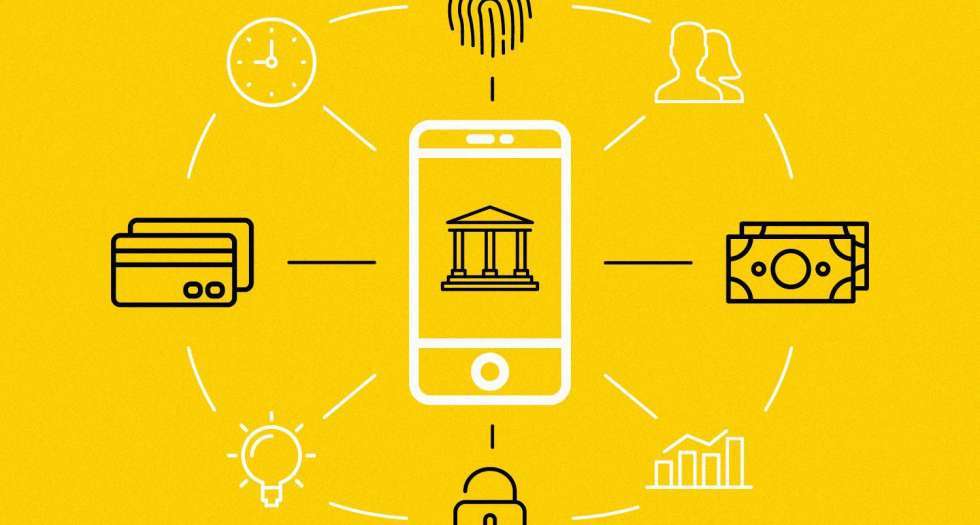New technologies are constantly reshaping the banking industry, changing both consumer experience and the ways financial companies operate. Open banking grants third-party companies secure access to customers’ personal and financial data and extends the range of consumer-targeted financial services. Switching between the accounts of different banks, being suggested the best savings options or the lowest-interest credit card are just some of the examples of how consumers can benefit from open banking.
Technologically speaking, open banking uses application programming interfaces (APIs) to grant third-party access to user data. Through APIs, third parties can access the data they need for providing particular services, without even asking the user for a password.
This article will address open banking from a software development perspective and will demonstrate successful use cases of open banking technology.
Open Banking and Regulatory Approach to Innovation in Financial Services
As of 2020, UK remains “a front runner for its supportive regulatory approach to innovation in financial services,” according to FinTech Magazine.
In 2015, the UK was the first nation to launch its own regulatory fintech sandbox to enable and foster innovation in products and services.
In fact, other nations including Singapore and Australia have copied the UK’s progressive, open-minded, and internationally focused regulatory scheme.
The launch of the Payment Services Directive (PSD2) inspired the creation of Open Banking and a new wave of innovation.
“94% of fintechs are considering Open Banking to enhance current services and 81% are using it to enable new services.” EY
Consequently, this allows UK fintechs to innovate in areas currently unavailable to the US and other countries across the globe.
How Open Banking Lowers The Barriers To Entry For Fintech Developers
The European Commission’s Second Payment Services Directive (PSD2) obliging banks to allow third-party companies to initiate payments on clients’ behalf has opened the doorway for open banking as well as for the emergence of PSD2-as-a-service within the EU.
However, open banking is a broader term and covers more than just payment transactions. From a technological standpoint, APIs are facilitating the task of third-party app developers, granting easy access to data they can use to offer clients new and, ultimately, more diverse financial products.
Understanding the advantages of APIs is essential to seeing how open banking affects fintech. APIs are a reliable and secure means for authorizing third-party apps without revealing any password details. Previously, data sharing between parties has been enabled, to some extent, by screen scraping – a method that required usernames and passwords to extract the necessary data from customers’ accounts. APIs, on the other hand, remove the need for password access while increasing security. With smoother and more secure data sharing, app developers can now focus on building new and better services.
In the United States, which is under different regulations for financial service standards, consumer demand, as well as the financial companies’ drive to stay competitive, have set the stage for adoption of open banking. Regulated or not, the financial industry has been continuously embracing technology and is ready to grant fintech app-developers access to financial data.
From the customers’ perspective, open banking is beneficial in a number of ways:
Better banking services
Banks will now be forced to improve their offerings and to price them competitively. Rather than allowing third-party companies to offer their customers improved services, banks may choose to enhance their own financial products and services. Alternatively, they may profit from referrals by offering customers a vast choice of third-party FPM tools.
More tools for personal finance management (PFM)
Improved data sharing means app developers will be offering more tools for managing personal finances. Streamlined savings, investments, and insurance underwriting will help customers increase financial security. By using predictive analytics, for example, PFM tools could forecast future events in a customer’s account and suggest new savings or investment plans.
Personal and business loans made easier
Getting personal loans or loans for business will become faster and easier with third-party apps having seamless access to all the necessary data. What previously involved hours of manually filling in and submitting a number of forms/reports may actually become a matter of minutes.
Instant fraud detection
Open APIs will enable real-time data analytics to detect any suspicious activity in customers’ accounts. Moreover, complete data transparency will allow third-party apps to eliminate any unnecessary charges and optimize a customer’s’ spendings.
Flexible payment processing
With easier data sharing, new payment services are likely to emerge; moreover, service providers will likely be charging less for payment processing, which will have a rejuvenating effect on the economy in general.
More diverse services
Improved data sharing will lead to increased diversification of fintech services as more app developers will enter the open banking scene. On top of that, existing financial service providers will benefit from subscriptions and referrals to third-party services. Needless to say, the new financial tools are likely to be competitively priced.
Examples Of Solutions That Leverage Open Banking
Let’s now take a look at some of the existing fintech solutions powered by open banking:
Zeux is a UK-based all-in-one money app that combines payments, banking, and investment. It’s a mobile platform that allows users to compare the best savings accounts and investment products, and earn up to 6% on their money, see all bank accounts in one place, categorise spending, transfer money in just a few taps, and enjoy zero-fee FX when spending money abroad.
By the way, we’re happy to be a software development partner for Zeux and host their Extended FinTech Team in our Ukraine-based R&D Centre.
Credit Data Research – as the name suggests, this fintech company offers a credit profiling tool, called Credit Passport, for businesses applying for loans. Powered by open-banking, Credit Passport facilitates an organization’s dialogue with financial institutions and helps businesses to always have a transparent credit profile for clients, partners, and suppliers.
Coconut is a financial open banking tool for self-employed customers. The app aggregates banking, accounting, invoicing, and taxing services into one platform, enabling users to better manage their finances and income.
Ormsby Street – a fintech company building digital tools aimed at helping businesses make data-driven decisions. Credit HQ, for example, gives insights about the financial credibility of customers and suppliers, and Credit Focus is a debt collection management tool for requesting prompt payments and ensuring that a company always gets paid on time.
Open Banking Security Risks and Concerns
Rightfully, though, the concept of open banking gives rise to security and privacy concerns. With app developers gaining access to highly sensitive user data (spending habits, healthcare details, family and friends info, etc), customers have to rest assured that the third-parties won’t misuse it or share it without permission.
The risk of APP scams is yet another unresolved issue. APP stands for authorized pushed payments, i.e. when scammers, disguised as police officers, or bank employees can trick customers into making payments. On top of that, if shared access to data by multiple parties implies responsibility, which of the parties involved is responsible for leakage or fraud?
On a government level, one way of dealing with security risks is by imposing regulations. In the UK, for example, customers have to specify how and on which instances third-parties can use their data. In the United States, banks have full control over who has access to shared data and are solely responsible for granting access permissions. Still, even regulated companies aren’t completely immune to data theft. All in all, despite the promise of robust security measures and data encryption, open banking still has to go a long way to win customers’ trust.
“Open banking is actually a bit of a misnomer: there are no truly open APIs in financial services. Due to security, regulatory, and privacy concerns, it’s essential to properly vet each developer and use case.“
Zach Perret, CEO of Plaid
Open banking has an immense potential of positively disrupting the fintech scene by improving services, promoting healthy competition, and introducing new and increasingly diversifying financial products. Its impact is likely to be similar to the advent of the cloud and give the financial industry an unparalleled acceleration boost.
New startups are likely to emerge, as lowered entry barriers open the doors to budding businesses. However, to fully deliver on these promises, open banking has yet to develop a set of practices for quality assurance and data protection. When it comes to safeguarding customers’ data, you and your offshore fintech extended team/outsourcing provider should be on the same page. Robust security practices, risk mitigation plans, mature hiring processes, and access to high-quality talent are major indicators you’ve found a partner you can rely on.
Are you looking to leverage Open Banking technologies for your FinTech software development project? Drop us a line to learn how we make a difference and can help you meet your business goals faster and more cost-effectively.

